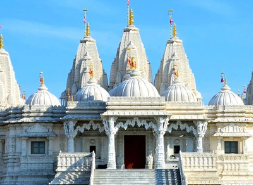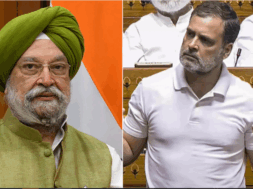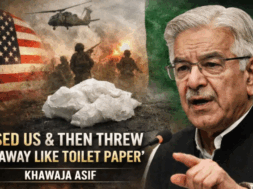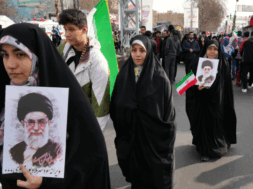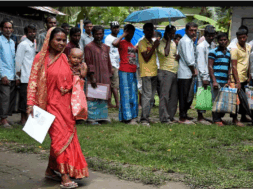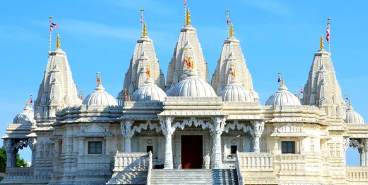
Hindu Temples in Canada Defaced, Vandalised
NEW DELHI, Sept 25: Even before India – Canada diplomatic row erupted over the Canadian prime minister Justin Trudeau levelling serious charges against India, a series of disturbing incidents had shaken the Hindu community in Canada.
Sources said several Hindu temples were vandalised, with anti-India and pro-Khalistan posters pasted on their premises. The incidents sparked outrage among the Indian diaspora, who voiced their concerns about growing tensions between two religious groups in the country.
Trustees of Hindu temples in the Greater Toronto Area say that the vandalism was ongoing and coupled with perceived inaction by the Trudeau government, had created a palpable sense of fear within the Hindu community.
“Everyone is talking about the threats, the slogans, swords being waved in the open, but the government has done nothing to curb it,” some trustees said.
In response to the escalating situation, many temples have taken measures to increase security. This includes the installation of additional CCTV cameras and gates. Steel pillars have been added around the Sardar Vallabhbhai Patel statue outside the Sanatan Mandir to prevent vandalism.
According to one of the Trustees, the steel pillars and the new gates have been set up in the last few months because it was assessed that miscreants could use vehicles to damage the Sardar Patel statue. The trustees say that this step was taken after a statue of Mahatma Gandhi was vandalised with spray paint in March in the town of Hamilton. The Sanatan Mandir now has only one entrance, which is via a CCTV-protected manned gate. The larger open entrance has been shut with a fence and a metal gate.
The Lakshmi Narayan Mandir in British Columbia was one such temple targeted by extremists. Last month, the temple was defaced with posters demanding referendum for Khalistan. The posters bore messages such as “Canada investigates India’s role in June 18th assassination” and featured a photo of Hardeep Singh Nijjar, a designated terrorist and chief of the “Khalistan Tiger Force” who was killed outside a Gurdwara in June.
This incident was not an isolated one. Earlier in April, the BAPS Swaminarayan temple in Ontario was vandalised with anti-Hindu and anti-India graffiti. In January, the Gauri Shankar temple in Brampton was also targeted with similar graffiti. These incidents have been described by police as “hate-motivated.”
These incidents have strained diplomatic relations between India and Canada. The Indian consulate in Toronto has condemned the vandalism and urged Canadian authorities to investigate and take appropriate action against those responsible. City officials have advised the temples to be more vigilant in light of these incidents.
These and some other issues were discussed in a high-level meeting of intelligence agencies held in Delhi on Monday. Sources said the issues discussed included the soft-pedalling of Khalistanis, which ensured that moderate and pro-India Sikhs were thrown out of all big Gurdwaras in Canada by the muscle and money power of the Pro-Khalistani Extremists (PKEs). Emboldened by their “rising clout” in Canada, the PKEs have started openly intimidating minority Hindus there.
“The open threats by Khalistanis to the physical security of Indian missions and diplomats in Canada is a very serious development and challenges the obligation of Canada under the Vienna Convention,” a senior government officer who’s closely monitoring the situation said. “It appears there are different scales for measuring human rights,” the officer said.
“Voices from Canada are very strong on even trivial issues in Punjab, while there has been a complete silence on intimidation, violence, drug trafficking and extortion by PKEs sitting in Canada, affecting both countries,” the officer added.
Dossiers maintained by the intelligence agencies show Punjab today suffers heavily because of extortion rackets run from Canada. Canada-based gangsters bring drugs from Pakistan through drones and sell across Punjab. A part of this money goes back to Khalistani extremists in Canada.
(Manas Dasgupta)
